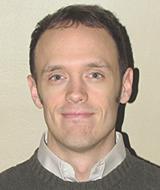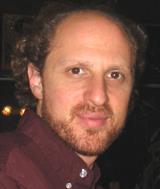A Ghost in the Transference: Attachment to the Deceased and the Therapeutic Relationship
Date: Saturday, September 15, 2018
Time: 8:30 a.m. – 12:00 p.m.
Location: Center for Grief Recovery, 1261 W. Loyola, Chicago, Illinois
Mourning is an inherently social process. Within grief counseling, the therapeutic relationship plays a crucial role in coping with complicated bereavement after a loss, but what if the therapist-patient dyad itself becomes complicated? How does the past relationship with the deceased influence the here-and-now therapeutic relationship?
Building upon the basic tenets of attachment theory, this program explores the clinical phenomenon of transference in grief counseling. Various types of attachment to the deceased can not only impede the mourning process, they can also shape the subjective experience of the therapeutic relationship and manifest in problematic reenactments. This presentation will look at attachment theory, theories of transference and countertransference, and the psychodynamic tradition of self psychology to better conceptualize impasses within grief counseling and use the here-and-now therapeutic relationship to overcome complicated bereavement and provide healing.
Upon completion of this program, you should be able to:
-
- List three ways in which complicated grief manifests in relational behavior.
- Describe the essential differences between attachment styles and how each manifests in different ways amidst experiences of grief in clinical work.
- Identify therapeutic techniques that research shows to be more effective for complicated grief depending on the patient’s attachment style.
Faculty:
 Paul M. Martin, Psy.D. is a licensed clinical psychologist. He serves as the assistant director of The Center for Grief Recovery, a Chicago-based nonprofit organization and group practice in which his own private practice is housed; The Center offers individual, group and family therapy. Dr. Martin specializes in clinical services for those struggling with loss and grief; he also provides consultation to workplaces that have experienced loss and individual professionals working with cases pertaining to grief. Dr. Martin is an affiliate faculty member at The Chicago School of Professional Psychology where he teaches graduate-level psychology coursework that focuses on psychodynamic theory and intervention as well as the broad topic of separation, loss and mourning. Dr. Martin is currently writing a book entitled Absence and Presence: How Rituals Help Us Mourn.
Paul M. Martin, Psy.D. is a licensed clinical psychologist. He serves as the assistant director of The Center for Grief Recovery, a Chicago-based nonprofit organization and group practice in which his own private practice is housed; The Center offers individual, group and family therapy. Dr. Martin specializes in clinical services for those struggling with loss and grief; he also provides consultation to workplaces that have experienced loss and individual professionals working with cases pertaining to grief. Dr. Martin is an affiliate faculty member at The Chicago School of Professional Psychology where he teaches graduate-level psychology coursework that focuses on psychodynamic theory and intervention as well as the broad topic of separation, loss and mourning. Dr. Martin is currently writing a book entitled Absence and Presence: How Rituals Help Us Mourn.
 In addition to directing the Center, David Fireman holds a practice grounded in Self and depth psychologies. He is a proponent of pragmatic empathy, which entails working in partnership with the therapist, to understand and explain core organizing beliefs about self and others, and practicing realistic ways to both manage and transform non-productive habit patterns into compassionate and useful actions. In tandem with his client work, he also provides professional consultation services to therapists in private or agency settings. Finally, to round out his traditional training in social work and psychotherapy, David draws from his experience as a practitioner of judo, yoga, Tibetan forms of meditation, and Jewish spirituality.
In addition to directing the Center, David Fireman holds a practice grounded in Self and depth psychologies. He is a proponent of pragmatic empathy, which entails working in partnership with the therapist, to understand and explain core organizing beliefs about self and others, and practicing realistic ways to both manage and transform non-productive habit patterns into compassionate and useful actions. In tandem with his client work, he also provides professional consultation services to therapists in private or agency settings. Finally, to round out his traditional training in social work and psychotherapy, David draws from his experience as a practitioner of judo, yoga, Tibetan forms of meditation, and Jewish spirituality.
Conflict of Interest Policy Statement: Faculty participating in this program are expected to disclose to the program audience any real or apparent conflict(s) or unlabeled use related to the content of their presentations.
Registration:
Space is limited so early registration is recommended. The registration fee is $85. Students or less than 5 years post degree $55. The registration fee includes break refreshments, printed materials and continuing education credits/units.
Register by phone: Call (773) 930-3200, 8:30 a.m. – 4:30 p.m., Monday thru Friday.
Cancellation policy: Full refund will be provided if cancelled three weeks prior to the program. You may send a substitute with prior notification.
Continuing Education Credit:
A Certificate in Professional Continuing Education for three (3.0) contact/clock hours will be provided upon completion of registration, full participation and evaluation of the program activities, for the following disciplines:
- Counselors (Clinical/Professional)
- Marriage and Family Therapists
- Nurse Practitioners
- Nurses (RNs/LPNs)
- Psychologists
- Social Workers
- Others (please inquire)
